The following is an Interview of Cecilia Manguerra Brainard by Christopher Abadilla for Dr. Cherry Malaque's Literature Class at the University of the Philippines, Cebu.
Christopher
Abadilla: When did you first realize you wanted to be a
writer?
Cecilia
Brainard: I discovered writing when I was nine years
old, after my father died, and I used to write him letters to update him of my
life. When I was in high school, my sister gave me a lock-and-key diary, which
increased my love for scribbling poems and my thoughts in there. But even
though I enjoyed these private scribblings and theme writing in school, I
thought I wanted to be an engineer, then a film maker, even a doctor at some
point.
I was a married woman with three children when my husband gifted me with
an electric typewriter (pre-computer) and I arranged to write a column with a
California newspaper, The Philippine American News. The idea that I could be a
real writer rooted. I also took Fiction Writing Classes at UCLA Extension’s
Writers Program and learned what I call the “tricks” as well as business of the
trade. Eventually my short stories started getting published and I had the idea
to collect them into a book. Then the next idea for a book sprouted and so on.
Now I have 19 published books with my third novel forthcoming by the University
of Santo Tomas Press.
CA:
How long does it take you to write a book?
CB:
It
is difficult to say how long it takes for me to write a book, because each book
has its own demands. The novels are difficult and unpredictable. My third novel took perhaps five years from
when I committed to writing it to completion.
My second novel may have taken that long or longer. The books that I’ve edited take two years
perhaps from the idea to completion. It also takes time to find a publisher and
get the books in print.
CA:
What would you say is your interesting writing quirk?
CB:
Because I’m busy (I’m a wife, mother, and have many other interests), I need
structure in order to get work done. I will therefore put myself in master
writing workshops or arrange with publishers to get such-and-such a book
published, in order to have mental deadlines which drive me to completing my
work.
CA:
Where do you get your inspiration or ideas for your books?
CB:
Inspiration or ideas are unpredictable but I find that most of my work involves
important historic events. For instance my novel story , is a coming of age about a young girl during World War II
in the Philippines. In this novel I used some of the stories I heard from my
parents about the war, and I have characters in there that are loosely based on
them. My forthcoming novel, The Newspaper
Widow, was inspired by my great-grandmother Remedios Lopez Cuenco who was
the First Woman Publisher in Cebu.
I have stories that were also inspired by characters
in Cebu, although I’ve fictionalized them. This is why the setting in many of
my stories is Ubec (Cebu backwards) so I feel free to change things around.
Further much of my work deals with my Filipino as well as my Filipino American
experiences.
CA:
When did you write your first book and how old were you?
CB:
My first published book is Woman With
Horns and Other Stories, released by New Day Publishers in 1987 (even
though the book indicates 1988). I was 40 years. The book included short stories that I had
worked on over a span of years though.
CA:
What do you like to do when you're not writing?
CB:
I edit; I have just restarted publishing other people’s works. I enjoy
blogging, travelling, reading, cooking, gardening. I enjoy family events. I
like to have projects. For instance I used to make rosaries and do beading and
other pieces of jewelry.
CA:
What does your family think of your writing?
CB:
They are proud of me. It took them a while to realize that I wasn’t just
wasting my time at the computer. Usually this happened when they heard about me
from other people or saw my name in a book or newspaper somewhere. In the case
of my children, some were surprised when their teachers or classmates knew
about my work.
CA:
What was one of the most surprising things you learned in creating your books?
CB:
I have always thought that books are important and valuable and was surprised
to find out that not everyone thinks so.
There are many people who don’t read.
CA:
Of all the books you have written, which is your favorite?
CB:
Each of my book is like my child, so it is difficult to say which is my
favorite. I love each one of them. The novels are difficult to write so I’ll
talk about them. My first novel, When the
Rainbow Goddess Wept, is dear to me because I used my parents’ stories and
it was wonderful to imagine what their lives could have been during that big
war that affected all Filipinos. My
second novel Magdalena did not get as
much attention as my World War II novel did, but Magdalena is creative and different and beloved by poets, literary
folk, and academics. My third novel, The
Newspaper Widow, allowed me to know Cebu during the early 1900s and imagine
what life could have been for my great-grandmother.
CA:
Do you have any suggestions to help me become a better writer? If so, what are
they?
CB:
First of all, read a lot, and read the kind of works that you’d like to be
doing. If you want to be a poet, read poetry; if you want to be a mystery
writer, read mysteries, if you want to be journalist, pay attention to how the
best news articles are written, etc.
Take writing classes and in particular learn the
fundamentals.
Keep a journal and write a lot.
Keep on trying.
Learn to listen to constructive critiquing.
CA:
Do you hear from your readers much?
CB:
Some people, especially students will contact me sometimes. Sometimes Facebook
messages from them will pop up but I am usually very busy and don’t have time
to chat with them. Sometimes I will. It depends. Sometimes I find the notes somewhat fresh.
Some are sincere. Some are lazy and want me to do their homework.
CA:
What kinds of things do they say?
CB:
Some will demonstrate they have actually read my work and say I liked Woman with Horns or When the Rainbow Goddess Wept, and maybe they’ll ask a specific question:
Why did this happen? What did this mean?
Some will just say: Thank you.
CA:
What do you think makes a good story?
CB:
If we are talking of fiction, I will say strong characters with character
development are most important.
CA:
As a child, what did you want to do when you grew up?
CB:
I wanted to be an engineer and went to UP for one semester to take civil
engineering. I almost flunked Math and I retreated back to a convent school
(Maryknoll College) where I enrolled in what I thought was the easiest major,
Communication Arts.
Tags: Philippine, Philippines, literature, writer, author, Cebu, Sugbo, Cebuano, novelist, interview, Philippine American, Filipina, University of the Philippines
This is all for now,








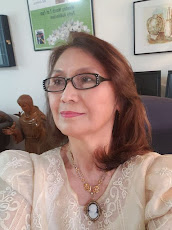

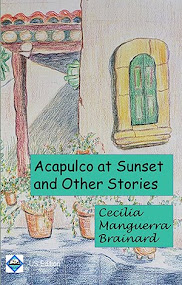



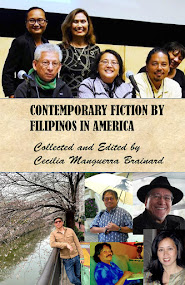
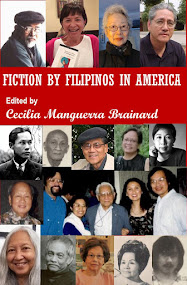



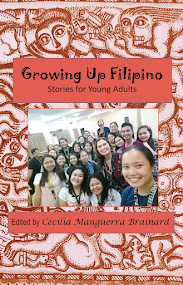
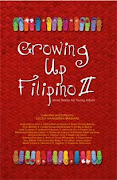


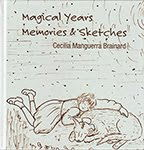


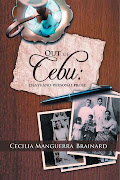

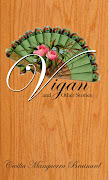

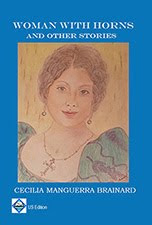

No comments:
Post a Comment